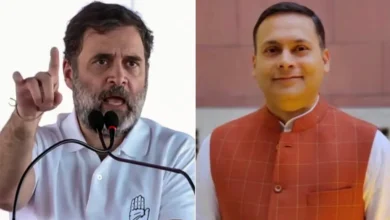English Elimination From Education Is An Oversimplified Solution To The Complex Issue Of Colonialism

English Elimination From Education Is An Oversimplified Solution To The Complex Issue Of Colonialism
Prime Minister Narendra Modi said, ‘India’s unity has never been a necessity, but a unique quality, on the occasion of the 147th anniversary of Sardar Vallabhbhai Patel’s birth.
During a speech in Gujarat’s Ekta Nagar, PM Modi called one Indian language an enemy of another as he celebrated India’s ‘Ekta.’
On more than one occasion, the PM has pointed out that knowing English has become a sign of intelligence rather than just a means of communicating – a sentiment echoed by Amit Shah.
When the PM made his statement, a Parliamentary panel recommended Hindi as the language of instruction in central educational institutions, which has sparked accusations of Hindi imposition by southern chief ministers such as MK Stalin and Pinarayi Vijayan.
Despite the Indian Constitution’s prohibition on naming Hindi as the official language, India has no national language. As part of Article 343 of the Constitution, Hindi was only recognized as an official language in 1950.
Currently, there are 22 official languages in India, and another 41 are on the waiting list for the 8th Schedule of the Indian Constitution, which was created to avoid demarking state borders on the basis of language when multiple languages are spoken throughout it.

Furthermore, the government must ensure that each of these sectors is developed. Approximately 44% of Indians speak Hindi, according to the 2011 census. So is the argument of rejecting colonial mindsets by promoting only Hindi accurate?
If the Centre isn’t just throwing its weight behind Hindi, what is the backlash? Do these claims about vilifying Hindi hold any water? As we mull over these others, we should add one more important question to the list.
Are we about to see an impact on education due to this bias over language? Madhya Pradesh has launched a Hindi MBBS textbook under a government plan to have medical courses in regional languages.
In response to this announcement by Amit Shah, which was received with much fanfare, there were anti-Hindi movements, with the Opposition, particularly in the southern states, claiming it was nothing more than a poll gimmick. I find it strange that Tamil Nadu is now getting ready to release MBBS textbooks in Tamil.

In support of this move, some commentators point to countries such as China and Russia that have made official languages the sole medium of instruction.
However, coupled with the argument that academics have thought that regional languages naturally enhance students‘ learning ability, both of these points make a strong point. However, they may well be oversimplistic in their analysis.
Many doctors have raised concerns about translating humongous medical terms into many languages and warned that it would compromise quality.
The second fact is that many medical colleges today teach both English and Mandarin and that the number of children enrolled in ESL programs in these nations is rising.
Considering India’s diversity, would it be wise to compare Hindi with Chinese or German? Furthermore, how important is Hindi, or any other vernacular language, to young job seekers compared to English?
In response to this claim, Prime Minister Modi defended the use of local languages, claiming that it would provide a barrier for English-language speakers who are uncomfortable with it.
He also mentioned that English was a hindrance, and many young talents from villages couldn’t obtain degrees in medicine or engineering due to their lack of proficiency in the language.

Sardar Patel himself made a similar claim in 1950 but in a slightly different manner. He argued that South Indians would be laggards in Central organizations and government if they did not learn Hindi, the nation’s ‘national language.’
Since language is associated with employment, isn’t English the great leveler facilitating global communication? It is evident that medical education is evidence-based and constantly evolving with the introduction of new research.
This is also true if we look at medicine alone. It is sometimes necessary to consult multiple books and research papers to treat a case. Before even considering the possibility of phasing out English, we must develop a sound and established translation system.
In Madhya Pradesh, employed 97 doctors for the translation of the three books of the first-year syllabus of the MBBS program. As far as the translation is concerned, It couldn’t do it overnight.
These four months of work indicate that the doctors were overburdened with responsibilities beyond their capabilities. The situation would be no different in Tamil Nadu.
Is it reasonable to burden the existing workforce with unnecessary academic responsibilities in a country where healthcare infrastructure needs constant development?

Moreover, why is Tamil Nadu practicing its brand of chauvinism against Hindi imposition? Despite India’s progress, forces disturbed by it still exist, and campaigns are being conducted to turn one Indian language into an enemy.
Isn’t this another cloaked Hindi effort to empower the linguistic extremist ‘Hindi-wallahs’ to continue their militant ideology? Are Hindi and the other 65 prominent languages the most vital answers to what is being referred to as English elitism in a country where 65 main languages are spoken?
edited and proofread by nikita sharma




